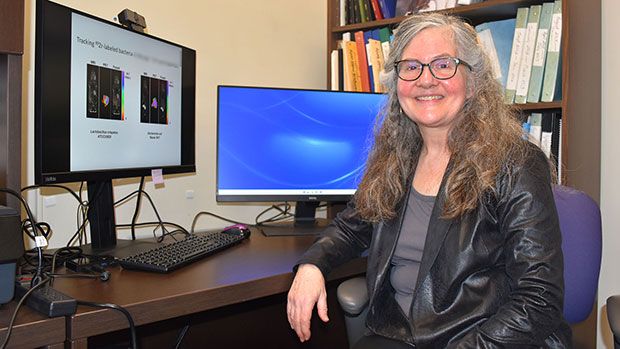One-third of young women diagnosed with locally advanced cervical cancer despite screening, study shows
LONDON, ON – Since the implementation of regular screening, death from cervical cancer has decreased by 75 per cent. However, many young women are diagnosed with locally advanced cervical cancer (LACC) despite compliance with screening. A study conducted by researchers at Lawson Health Research Institute explored why this is occurring and found a number of misconceptions surrounding cervical cancer screening and diagnosis.
Researchers reviewed the health records of women under the age of 50 who were treated for LACC between September 2010 and December 2012 at London Health Sciences Centre (LHSC) and underwent a Papanicolau (Pap) smear within two years of diagnosis. Thirty-four per cent of these women had a normal Pap test within this time period.
As part of the study, women participated in face-to-face interviews and several important themes emerged. Lead Lawson researcher and Radiation Oncologist at LHSC, Dr. David D’Souza says their findings suggest that the signs and symptoms of cervical cancer are not always recognized.
Pap smears are recommended every three years for women with normal test results. D’Souza found that there is a commonly held belief that those compliant with this screening regimen do not develop cervical cancer. “The women we interviewed expressed feelings of shock upon receiving their diagnosis. They believed a normal Pap test meant they were cancer free.”
The results of the study show a clear need to educate physicians on the presentation and diagnosis of cervical cancer. “A Pap test is a screening tool; not a diagnostic test for invasive cancer, and should not be relied upon to rule out disease,” cautions Dr. Jacob McGee, Gynecologic Oncologist at LHSC. “Pelvic exam with direct visualization and assessment of the cervix should be an initial step in the evaluation of women who are symptomatic.”
Dr. McGee also highlights the need for greater education with regards to HPV screening and vaccine. “The HPV vaccine is expected to decrease the number of HPV related cancers, and along with HPV screening, it is possible to reduce the overall burden of cervical cancer.”
Treatment for LACC has significant impacts on quality of life, including loss of fertility, adverse changes in sexual function and bowel and bladder problems, stressing the importance of early identification and treatment.
This is one example of how Lawson is contributing to making Ontario Healthier, Wealthier and Smarter.
-30-
Lawson Health Research Institute is one of Canada’s top hospital-based research institutes, tackling the most pressing challenges in health care. As the research institute of London Health Sciences Centre and St. Joseph’s Health Care London, our innovation happens where care is delivered. Lawson research teams are at the leading-edge of science with the goal of improving health and the delivery of care for patients. Working in partnership with Western University, our researchers are encouraged to pursue their curiosity, collaborate often and share their discoveries widely. Research conducted through Lawson makes a difference in the lives of patients, families and communities around the world. To learn more, visit www.lawsonresearch.ca.
Communications Consultant & External Relations
Lawson Health Research Institute
T: 519-685-8500 ext. 75664
C. 519-619-3872
@email




